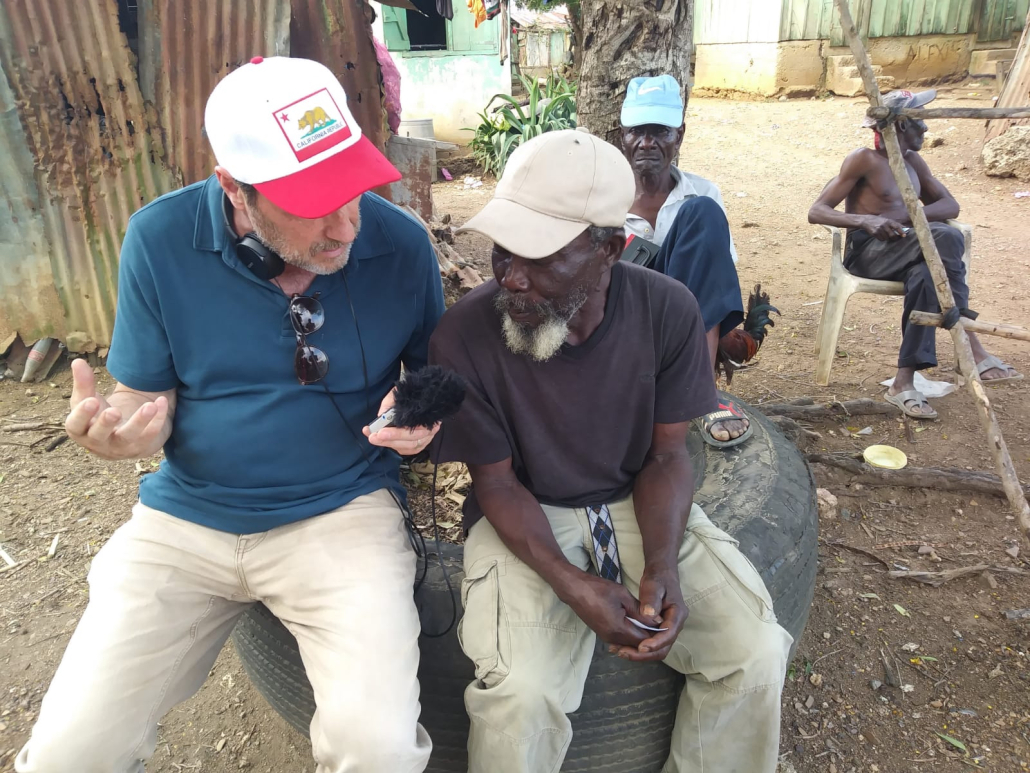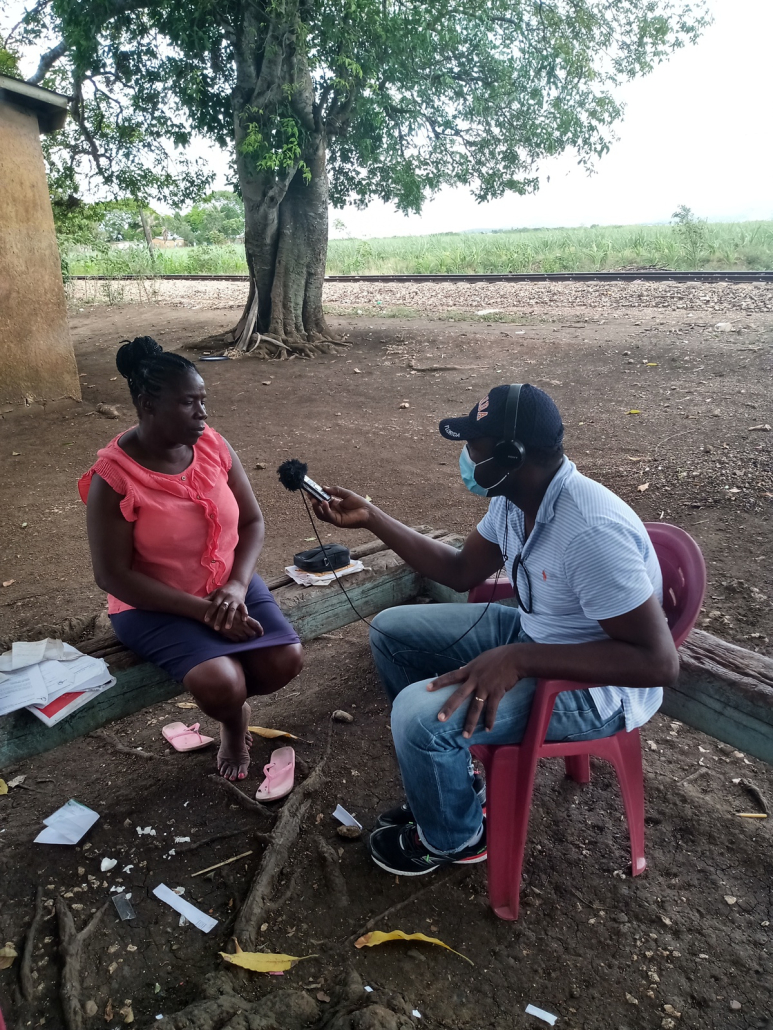Journalism professor wins Overseas Press Club award

Whether he was reporting from Gaza, Sarajevo or the south of India, journalist and USC professor Sandy Tolan could not get his mind off Lulu Pierre.
Tolan met Pierre in 1991 when visiting the Dominican Republic on assignment for NPR, where he worked at the time. Pierre, then 14 years old, was a victim of a child labor and human-trafficking operation that brought Haitians to the Dominican Republic where they were forced to cut sugar cane on plantations for survival.
After struggling with the laborious task, Tolan said Pierre “gave up, and he said ‘I give myself up to God.’” Tolan decided to intervene and helped get Pierre back to safety in Haiti.
More than 30 years later, Tolan went back to Haiti in an attempt to make a story about finding Pierre and learn if he had made it back to safety. While this effort was unsuccessful, another story became the focus of Tolan’s return — the modern-day conditions in Dominican sugar cane fields.
Tolan, along with his reporting partner Euclides Cordero Nuel, created “The Bitter Work Behind Sugar” for Reveal of The Center for Investigative Reporting, copublished with Mother Jones magazine. The story won an Overseas Press Club award and spurred potential change for Haitian cane cutters in the Dominican Republic.
“Because of our reporting, and some additional work in the Washington Post, The United States Congress, through the House Ways and Means committee’s Subcommittee on Trade [has] written two very strong letters, including something called an oversight letter, demanding that three federal agencies investigate what they call ‘slave-like conditions,’” Tolan said.
Cordero Nuel recounts that Tolan broke the news about the award to the team in a group chat which included the duo’s editor, Michael Montgomery. The Overseas Press Club’s Morton Frank Award is granted to the “best international business news reporting in TV, video, radio, audio or podcast.” The award will be given out at a ceremony in New York on April 21.
Tolan said the situation in the fields and small worker towns, bateyes, did not improve much since his last visit in the ’90s. In 2019, they found houses in disrepair, poor medical care and no electricity or running water.
“Most of the houses didn’t have the basic things we take for granted [in the United States],” said Rafael Perez, a sophomore majoring in business administration, about one of his service trips to the country. “Some had running water, some did not — just not great conditions to live in.”
Workers are paid as little as $4 a day, but it depends on the amount of sugar cane brought in. Healthcare and other services are severely lacking, and the Haitian workers are forced into loan schemes that can incur over 520% interest annually, locking them into a life of debt, Tolan said.
“That’s why Central Romana doesn’t want to change the life of the people,” Cordero Nuel said. “If their lives change because of the better wages, they don’t have workers.’
Central Romana is the massive corporation responsible for approximately 70% of the Dominican Republic’s sugar exports and has incredible power in the country. Cordero Nuel said they are “a state within a state.”
“Central Romana says it’s poured millions of dollars into the bateyes to improve living and working conditions,” Tolan wrote in “The Bitter Work Behind Sugar.”
Yet, the corporation still exploits its workers with miserable working and living conditions. While those stuck at the bottom of Central Romana suffer, brothers Alfonso and Pepe Fanjul, who bought Central Romana in 1984 with a group of investors, live lives of luxury, traveling on million-dollar yachts and staying at luxury resorts.
This human rights catastrophe doesn’t exist in a vacuum: Much of the Central Romana sugar cane produced by the Haitians goes directly to U.S. processing mills and ends up in the hands of ordinary Americans, Tolan said.
“It gets turned into cakes and cookies and Hershey bars, literally Hershey bars,” Tolan said. “There literally is a connection between the lives of those people in the Dominican Republic, those Haitian Cane cutters, with the consumer decisions that we make.”

Cordero Nuel grew up in a batey and attests to the hardships these workers face. The Haitian Dominican journalist has dedicated the majority of his career to telling the stories of Haitian Dominicans, especially those that work in the sugarcane fields.
“When I’m not working on the sugarcane plantation, interviewing [and] talking to the people and investigating the violence there, [the] violations, I’m on the Dominican frontier between the Dominican Republic and Haiti,” Cordero Nuel said.
Cordero Nuel helped culturally and linguistically bridge the gap between the sugarcane workers and Tolan. The pair met when Tolan was looking for someone that was familiar with the area and the Dominican bateyes.
“It’s rare to find someone who has those kinds of linguistic gifts, and courage, and good humor, and kindness and great journalistic instincts,” Tolan said, speaking of Cordero Nuel.
The team faced danger because of their reporting, at times threatened by armed guards.
“There were times I put my phone in airplane mode because we thought we were being traced,” Tolan said.
Both reporters are excited to receive the award, but Tolan is especially excited for Cordero Nuel, given how early he is in his career and the danger he faced reporting.
“I am so excited for [Cordero Nuel] because it has been more difficult for him. He’s had more difficulties as a result of the story than I have,” Tolan said. “He’s a young journalist who’s relatively early in his career, and I am so thrilled for him above all else.”
Tolan and Cordero Nuel hope these investigations lead the U.S. to take action to hold Central Romana accountable. There is a fear that in doing so, Tolan said, the sugarcane corporation will merely mechanize, leaving its many workers jobless. However, Tolan said Central Romana improving living conditions for its workers is more likely.
“Action from Congress and possibly from other agencies will have far more sweeping impact than any award could,” Tolan said.

